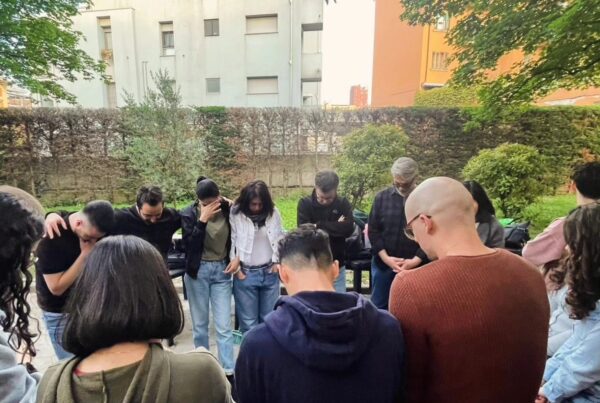Right now in the UK, we’re all complaining about the weather. It’s a national pastime. Usually, it’s the wind and the rain, but it’s too hot for us at seven days over 85°F, and we feel like we’re about to start melting! Everything has to change as we realize going at our usual pace isn’t sustainable. We need to slow down.
The need to run hard isn’t an uncommon trait among church planters. We’re the kind of people who like to get things done, and in the early stages of a plant, there’s always a lot to do. Someone has to book a venue, raise funds, deliver a sermon, order the coffee, post on social media, sort the teams, meet with individuals, meet with other local church leaders, connect with the community, etc.
Our to-do list is out of control. But, as many church planters have experienced, that early pace isn’t sustainable long-term. As runners know, you don’t start a 200m sprint as you would a 50k ultramarathon—pace matters.
Setting a Sustainable Pace
Missional innovation is a big part of Acts 29’s identity. We’re a network that seeks to plant churches in every nook and cranny of the globe, taking Jesus where he isn’t known—sowing seeds of life and hope into a world entangled by death and despair.
But our worthy mission can become a dangerous tendency to do too much in an unsustainable way. We start around the track as if it’s 200m, but eventually realize it’s a much longer race than we’ve paced ourselves for. How do we keep going?Our worthy mission can become a dangerous tendency to do too much in an unsustainable way. Click To Tweet
The reality is many don’t. Some church plants don’t make it at all, and more commonly, a planter burns out and takes an extended break. So then, how do we set a sustainable long-term pace? Especially in a world of politics, polarisation, and pandemics where we’ve had to undertake the exhausting work of innovation for the last two years. How can we, rather than sprinting and collapsing, learn to march?
There are many answers to that question, but for now, here are three particular issues for church planters.
Rest
Resting isn’t a sign of weakness but godly wisdom. We’re not created to work for 168 hours per week. From the beginning, God modeled for us his pattern of work and rest (Gen. 2:2–3). It’s an opportunity for us both to enjoy his good work of creation (Ex. 20:11) and redemption (Deut. 5:12), yet planters are often poor at practicing rest. We live in a way we weren’t created to live. We sprint and collapse repeatedly. To rest is to know that I’m not God, and the God of life is working without me.
Retreat
Jesus modeled this in a way that feels nonsensical for most modern Western ears. Throughout the Gospels, we see him pulling back instead of driving forward, just as momentum builds and crowds gather (Mark 4:35–39). Imagine your church plant just launched. It’s growing and thriving, and numbers are encouraging. New guests try you out each week—they keep returning and bringing friends!
It’s that kind of moment that Jesus slows down. He withdraws and heads out to spend time alone with his father in heaven before embarking on the next phase. We must take time, not just to rest but also to spend time with our Father in heaven. Life isn’t found in numbers—it’s found in the author of life.We live in a way we weren't created to live. We sprint and collapse repeatedly. To rest is to know that I’m not God, and the God of life is working without me. Click To Tweet
Refresh
It’s challenging to read the account of Martha and Mary in Bethany (Luke 10:38–42). They both did good things. When Jesus showed up, Martha was busy doing everything and encountering the usual stress and grumbling that comes with it. Mary, on the other hand, sat listening to Jesus. But that’s not going to get anything done, is it?
I wonder if, as planters, we often find ourselves “distracted by all the preparations that had to be made” (v. 40) rather than sitting at the feet of Jesus? We should be actively refreshed and nourished by his words, not just in our weekly preparation to preach or teach but to deliberately stop and listen to him, whose words are life-giving.
As I’ve reflected on these three issues in my life, can I let you in on a secret? My heart all too easily veers away from them and toward Martha-like activity. They don’t come naturally to me. If I’m going to do them, I need to make a plan. To say “no” to other things even.
Where can you build rest, retreat, and refreshment into your ministry rhythms? Like running a marathon, finding your pace takes practice, planning, and dedication.










